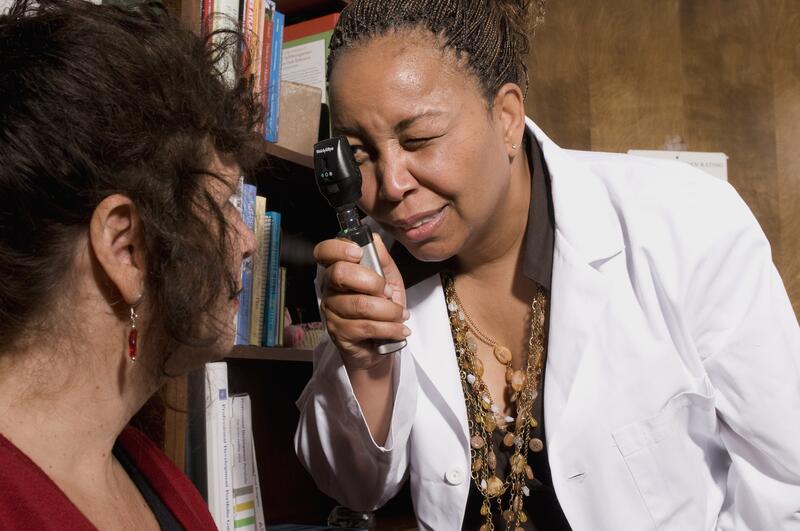Eyes on the prize: The development of managed clinical networks for optometrists and ophthalmologists.
By creating new networks connecting optometrists and ophthalmologists, eye-care specialists are finding new ways to collaborate and share specialty knowledge to improve patient care. The Strategy Unit has conducted a review of two of these new managed clinical networks (MCNs), analysing the impacts of their collaboration and publishing their findings in an in-depth report.
Managed clinical networks are self-supporting groups of professionals working together to ensure cross-speciality sharing of patients and expertise.
The aim of the MCNs is to bring together primary care optometrists with local ophthalmologists within a geographical area. This way, knowledge can be shared on a local level whilst encouraging networking with neighbouring colleagues.
The Strategy Unit were commissioned by NHS England to work with a medical retina MCN in Shropshire, Telford and Wrekin and a glaucoma MCN in Staffordshire and Stoke on Trent, to review their work so far and look at the opportunities the networks present. These new MCNs were established around the two different ophthalmology sub-specialities of medical retina and glaucoma because they contain high volumes of patients with scope for service improvement.
Under the guidance of Local Eye Health Network Chair Claire Roberts and Local Optical Committee chairs, Paul Cottrell (Shropshire) and Irfan Ravzi (Staffordshire), a collaborative and supportive environment within which to learn and share best practice was created.
Improving patient care has been the underlying drive for previous collaborations of this type and Ophthalmic MCNs are no different. They have given the chance for ophthalmologists and optometrists to get to know each other on a local level whilst starting to incorporate joint learning on both sides. For those who are mostly based in high street optical practice, the networks have led to more opportunities to focus on their professional development.
One of the keys to success for the MCNs has been a culture of being able to ask questions and offer thoughts in meetings without fear of judgement. Using ‘Chatham House’ rules, where the identity or affiliation of the person speaking is withheld, participants have been able to have a safe, protected space to encourage learning. Through these types of meetings, ophthalmologists and optometrists can more readily identify interests, skills, and competencies, opening up new avenues for working and learning together.
This review makes seven targeted recommendations for the successful scaling up of MCNs across the Midlands. As these MCNs grow they are well placed to provide an opportunity for shared learning and promote greater levels of knowledge and understanding to match continuing enthusiasm for collaboration.
CC BY-NC-ND 4.0

This work is licensed under a Creative Commons Attribution-NonCommercial-NoDerivatives 4.0 International License.
